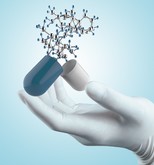Biosimilars/Research
|
Posted 27/04/2018
Trastuzumab, a recombinant humanized monoclonal antibody, acts against the tyrosine kinase human epidermal growth factor receptor 2 (HER2), which is overexpressed in up to 30% of breast cancers and gastric cancers and has been linked to poor prognosis. In the age of targeted anticancer therapy, trastuzumab is a key treatment for patients with HER2-positive (HER2+) tumours and is recommended by a number of clinical guidelines. However, the use of ‘originator’ (or reference) biologicals, such as trastuzumab, is associated with high treatment costs; an issue set to be exacerbated by an ageing population. The improved cost-effectiveness potentially provided by a biosimilar may increase patient access to treatment.























